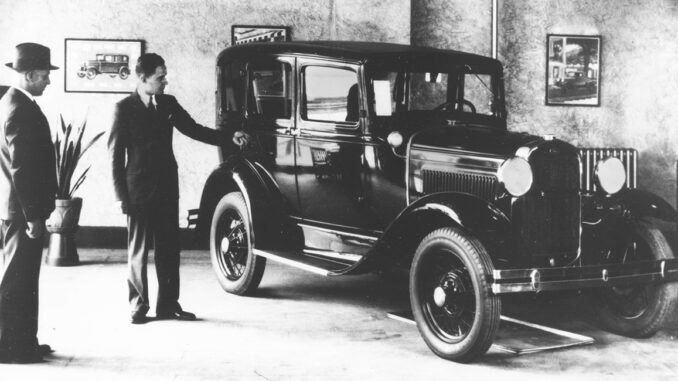
“This Week” looks back at the key events from this week in history.
July 18
1536: The English Parliament passed an act that declared the pope’s authority void in England.
1918: South African anti-apartheid leader and president Nelson Mandela was born.
1925: Adolf Hitler published the first volume of his autobiography, “Mein Kampf.”
1936: The Spanish Civil War began when General Francisco Franco led a military uprising.
1864: President Abraham Lincoln called for 500,000 volunteers to join the military to help the Union continue fighting the Confederacy.
July 19
1848: The Seneca Falls Convention in New York marked the beginning of the women’s suffrage movement in the United States.
1989: United Airlines Flight 232 crashed in Sioux City, Iowa, killing 111 people.
1997: The Provisional Irish Republican Army temporarily ended their 25-year paramilitary campaign to end British rule in Northern Ireland.
July 20
1917: America’s World War I draft lottery began as Secretary of War Newton Baker, wearing a blindfold, reached into a glass bowl and pulled out a capsule containing the number 258 during a ceremony inside the Senate office building.
1951: Jordan’s King Abdullah I was assassinated in Jerusalem by a Palestinian gunman who was shot dead on the spot by security.
1969: Astronauts Neil Armstrong and Edwin “Buzz” Aldrin became the first men to walk on the moon after reaching its surface in their Apollo 11 lunar module.
1976: America’s Viking 1 robot spacecraft made a successful, first-ever landing on Mars.
July 21
1861: During the Civil War, the first Battle of Bull Run was fought at Manassas, Virginia, resulting in a Confederate victory.
1944: American forces landed on Guam during World War II, capturing it from the Japanese some three weeks later.
1954: The Geneva Conference concluded with accords dividing Vietnam into northern and southern entities.
2016: Donald Trump accepted the GOP presidential nomination.
July 22
1862: President Abraham Lincoln presented his Cabinet with a preliminary draft of the Emancipation Proclamation.
1934: Bank robber John Dillinger was shot to death by federal agents outside Chicago’s Biograph Theater.
1943: American forces led by Gen. George S. Patton captured Palermo, Sicily, during World War II.
1967: American author, historian and poet Carl Sandburg died at his North Carolina home at age 89.
July 23
1829: William Austin Burt received a patent for his “typographer,” a forerunner of the typewriter.
1885: Ulysses S. Grant, the 18th president of the United States, died in Mount McGregor, New York, at age 63.
1903: The Ford Motor Company sold its first Model A car for $850.
July 24
1915: The SS Eastland, a passenger ship carrying more than 2,500 people, rolled onto its side while docked at the Clark Street Bridge on the Chicago River; an estimated 844 people died in the disaster.
1847: Mormon leader Brigham Young and his followers arrived in the Great Salt Lake Valley in present-day Utah.
1866: Tennessee became the first state to be readmitted to the Union after the Civil War.
1911: Yale University history professor Hiram Bingham III found the “Lost City of the Incas,” Machu Picchu, in Peru.
